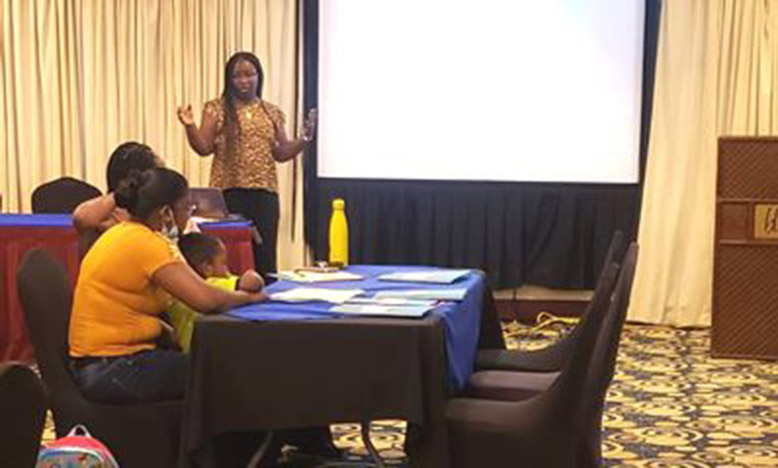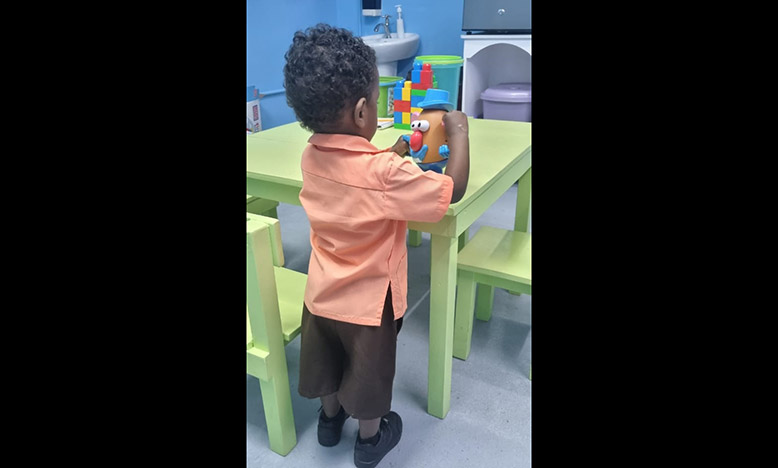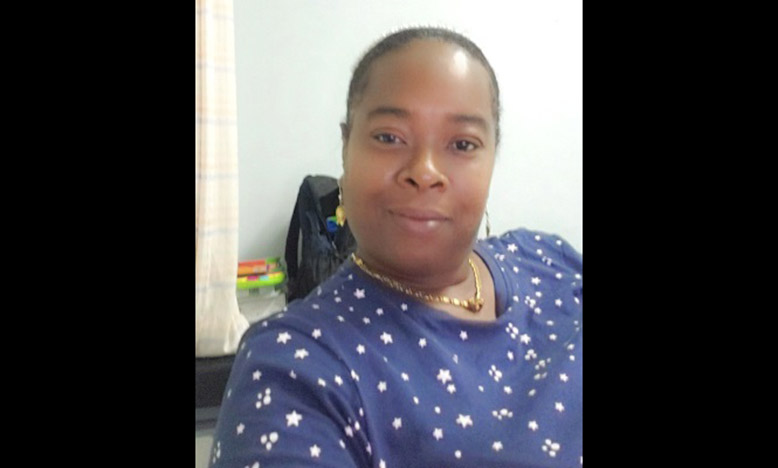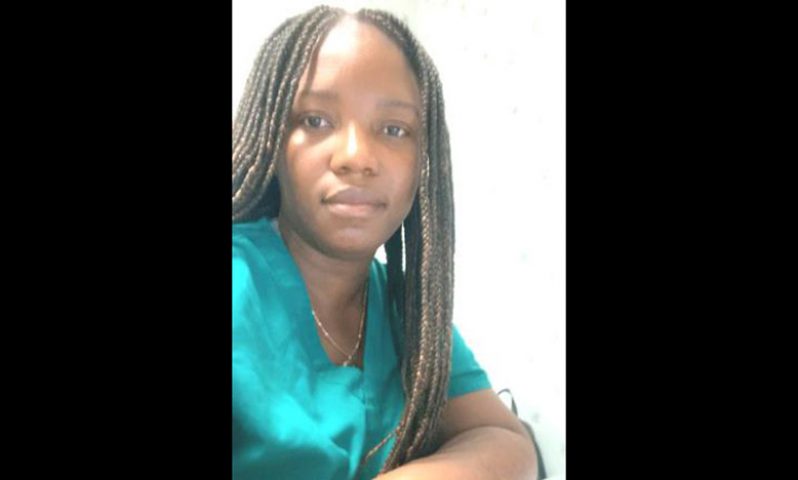By Telesha Ramnarine
WHEN Aretha Forde observed that her two-year-old son Aiden suddenly stopped talking mid last year, she initially thought nothing of it and decided to give him some time. When she finally took him to a doctor, though, he was diagnosed with Speech Development Delay and referred for speech therapy. What has been the best piece of advice she would’ve received to date? Play with the child!
“Play is therapy,” experts agree, and Aretha couldn’t be surer of the soundness of those words. Ever since she began to take her son for therapy last February, she’s noted some improvements and she has been incorporating play in almost every aspect of little Aiden’s life.

Aretha was among other parents who recently benefitted from a workshop called “Play Intervention as an Early Stimulation” that was organised by the Ministry of Health’s Speech Therapy Department in the ‘Georgetown’ hospital.
It couldn’t be timelier for her, especially as overseas-based Guyanese Speech Language Pathologist Sharlen Livan explained the valuable role of play in therapy and the practical things that parents can do to help their little ones.

Livan was on vacation at the time, but knowing of the constraints in the department especially regarding the shortage of speech therapists, she was happy to share in the event with her colleague Sonia Fredericks, who is a Speech and Language Therapist attached to the Health Ministry’s Rehab Services.
“The workshop was timely,” Aretha shared, adding, “Play for them is everything, so rather than have it be a quiz for everything or always trying to elicit a response, we should just play with them.”
Based upon her research and what was taught at the workshop, she has increased her efforts to incorporate play in the family’s daily activities. “I’ve worked it into everything; for breakfast, bath time and so on. I try to be as descriptive as possible to expand his vocabulary. When we’re out in the yard doing laundry, I would describe his clothing and we would talk about things in the yard. We also do a lot of sing-along with action and songs that would encourage him to talk,” she shared.

Aretha believes that it is imperative for parents to be proactive and to keep in tune with their child’s developmental milestones that can be found on their clinic card. “Check ever so often and if you notice something is amiss, there’s nothing wrong with asking; accepting that your child may not fit into the bracket of what’s accepted normal development and that there’s help available.”
While there are many things that other family members and teachers can do to help children with a speech delay, the reality is that many do not know what to do.
Livan, who has been working in the field for eight years with the Rockaway Care Centre in New York, reported that the number one concern that was raised by parents during the workshop she conducted was the limited number of trained teachers in the schools. “Some of the parents said the school will take in the child with a speech delay but when the child goes to the school, they really don’t understand how to handle him or her.”
It is for this reason that Livan, who also teaches an online class at the University of Guyana, was happy to help out with the workshop so that she can help to raise awareness on the subject. “I work closely with Sonia and I told her I was coming for vacation and she said lets plan an event. I was really excited to do it because we have a limited number of therapists in Guyana; one of the biggest things for us is collaborating with parents and teachers.”
At the workshop, she said the focus was on play-based therapy where toys and games are used to get the child to speak and engage in communication. “Play is therapy. It doesn’t have any structure; it doesn’t have any rules, so you can engage in a lot of language with the children and you don’t have to ask many questions. You just do a lot of descriptions,” she shared.
She encouraged the parents to involve play in everything they do with their kids. “You’re in the bathroom you can start describing the color of the soap or the smell of the soap, the splashing of the water, the texture of the towel, the bubbles.”
She reminded the parents that the child is always supposed to lead during play while they follow. “A lot of children learn easy that way because it’s not so structured. When a child is two years old, we do not want them sitting down at a desk answering questions about colors. When you’re in the kitchen you can say, ‘Look the yellow banana. Mommy’s gonna eat the big red apple.’ Play with them and make it fun,” the language expert, formerly of Henrietta and Danielstown, Essequibo Coast, advised.
Livan said she always makes herself available to answer questions from parents and teachers and even shared her email address for those who would like to reach out to her: sharlen.livan@uog.edu.gy
Another workshop is expected to be hosted next year with many more parents.




.jpg)










